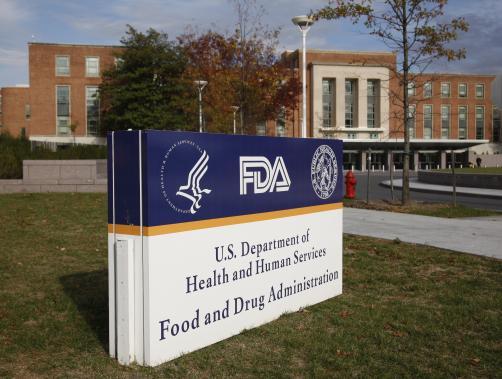Regeneron's COVID-19 antibody cocktail gets US emergency licence

Regeneron’s antibody cocktail is the latest COVID-19 drug to receive Emergency Use Authorization in the US, becoming the first therapy of this kind to become available.
The cocktail of casirivimab and imdevimab is still being investigated in trials but the FDA has enough data to grant a temporary licence while the pandemic continues.
Formerly known as REGN-COV2 or REGEN-COV2, the cocktail can be used for mild to moderate COVID-19 in adults and children at least 12 years of age and weighing at least 40 kg.
Doctors now have another option to choose from to combat the disease, following EUAs for drugs such as Eli Lilly’s baricitinib and Gilead’s Veklury (remdesivir).
To be eligible for Regeneron’s combination, patients must have received positive results of direct SARS-CoV-2 viral testing and be considered at high risk for progressing to severe COVID-19 and/or hospitalisation.
Clinical evidence from Regeneron’s outpatient trial suggests that monoclonal antibodies such as casirivimab and imdevimab have the greatest benefit when given early after diagnosis and in patients who have not yet mounted their own immune response or who have high viral load.
As part of the Operation Warp Speed project to rapidly develop therapies and vaccines against the disease, the US government and Regeneron a supply agreement for the cocktail, which was famously used to treat president Donald Trump after he became infected.
Regeneron will coordinate with state authorities to allocate the cocktail on a weekly basis, based on prevalence of the disease in each state.
The first 300 doses will be provided at no cost to patients, although hospitals and clinics may add their own fees.
AmerisourceBergen will be the first national distributor to begin delivering the therapy.
Earlier this month, Regeneron had to modify a trial protocol for the therapy after independent safety experts said it should not be given to high-risk patients after an undisclosed safety issue emerged in testing.
In late October, Eli Lilly said it wouldn’t resume a trial of its rival antibody therapy in hospitalised patients after National Institutes of Health researchers said it wouldn’t help.
AstraZeneca is developing a long-acting antibody therapy combination in the US and other countries to prevent infection happening and as a therapy for those already infected.
Regeneron’s antibodies were designed to combat SARS-CoV-02 using the company’s proprietary genetically modified mice, which have been engineered to have a human immune system.
The antibodies bind non-competitively to the virus's spike protein, which diminishes the ability of mutant viruses to escape treatment and protects against spike variants that have arisen in the human population.












